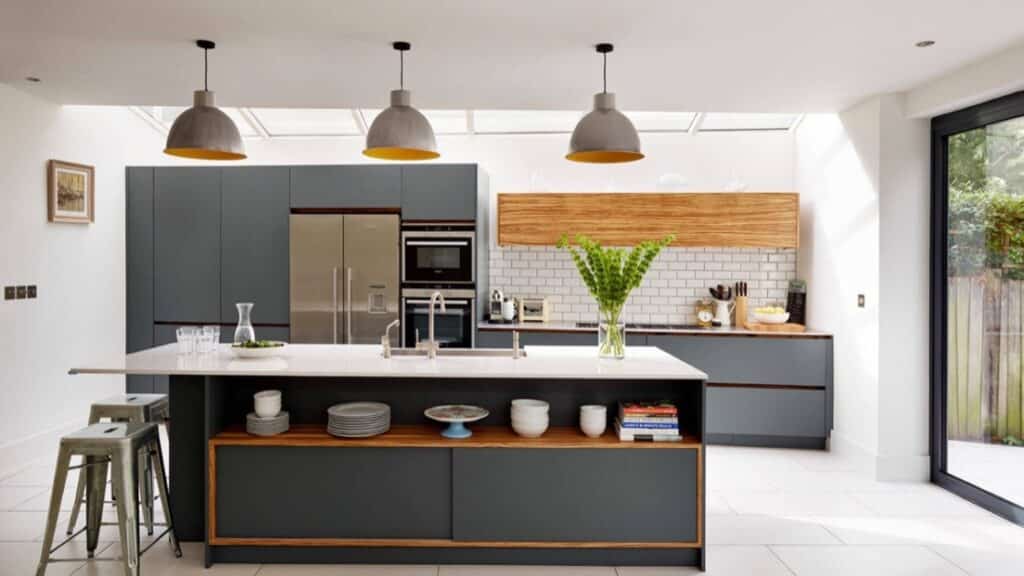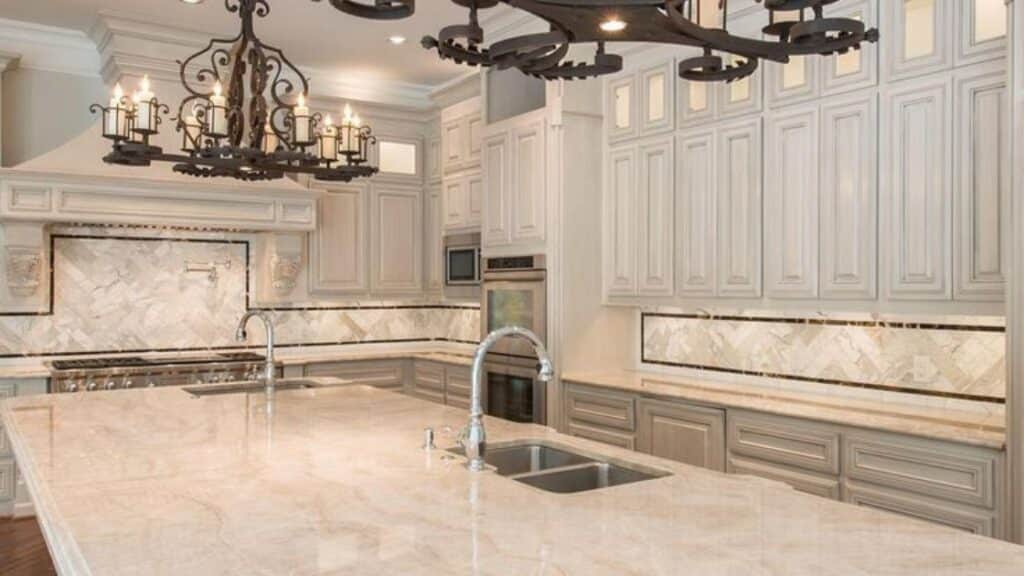Outline:
I. Quartzite vs Quartz: A Comparative Overview
II. Pros and Cons of Quartzite
III. Pros and Cons of Quartz
IV. Decide Between Quartzite and Quartz
V. Conclusion
What are the benefits and detriments of quartzite vs quartz in New Orleans? When it comes to updating your home, you want options that will be beautiful, durable, and aesthetically pleasing. For many homeowners in New Orleans, quartzite and quartz are two very popular choices for stone countertops. But what sets the two apart? In this blog article, we compare quartzite vs quartz to help you make the best decision for your home.

quartzite vs quartz
Quartzite vs Quartz: A Comparative Overview
Quartzite and quartz are materials that are often mistaken for each other, even though they possess different performance characteristics. Quartzite is a metamorphic rock, while quartz is an engineered material. Quartzite is formed when sandstone is heated and undergoes a transformation in the Earth’s crust. It’s 100% natural, whereas quartz is an engineered material made of quartz, resin, and other materials. Quartz has a look similar to granite, while quartzite has a waxy, non-porous surface and is usually thicker than quartz.
When it comes to aesthetics, both materials have beautiful and reflective surfaces. Quartzite countertop is available in a variety of colors, from pink to white or black. Quartz can be customized to include any color tones or patterns, depending on the manufacturer.
Pros and Cons of Quartzite
When it comes to quartzite vs quartz, quartzite is the more resilient and durable option. Quartzite is ideal for kitchen countertops due to its scratch-resistant and heat-resistant qualities. It is also less prone to staining than granite or marble, which makes it into a lower-maintenance option.
However, quartzite countertop installation is not without its drawbacks. For starters, quartzite is limited in its color options, so you don’t have as much flexibility when it comes to customization. Additionally, quartzite is not impervious to the acidic qualities of some foods and drinks so it’s important to take extra care to ensure that any spills are cleaned up as soon as possible.
Pros and Cons of Quartz
Quartz is an extremely low-maintenance material, as it is not as easily scratched or stained as quartzite. Additionally, quartz has a much wider range of color and pattern choices, allowing you to customize your countertop to perfectly fit your kitchen.
On the other hand, quartz is not as durable as quartzite. While it is heat resistant, it’s not as heat and scratch resistant as quartzite. It’s also more prone to staining, which can be a challenge for busy households.

quartzite vs quartz in New Orleans
Decide Between Quartzite and Quartz
When it comes to deciding between quartzite and quartz for your New Orleans home, it depends on the amount of maintenance you’re willing to put in. If you’re looking for a material that stands up to spills, Quartzite is a great option, but it may require more maintenance than quartz. On the other hand, quartz is much easier to maintain, but is not as resilient as quartzite.
Here’s a quick rundown of pros and cons of quartzite vs quartz:
- Quartzite Pros:
- More resilient and durable
- Lower-maintenance
- Scratch-resistant
- Heat-resistant
- Quartzite Cons:
- Limited range of colors
- Prone to staining from acidic foods and drinks
- Quartz Pros:
- Low-maintenance
- Wide range of colors and patterns
- Heat resistant
- Quartz Cons:
- Not as heat and scratch resistant as quartzite
- Prone to staining
Conclusion
When it comes to quartzite vs quartz in New Orleans, it’s up to you to decide. Each material has its own unique benefits and drawbacks, and the amount of maintenance you’ll be willing to put in needs to be taken into consideration. For the best selection of quartzite and quartz materials for your New Orleans home, the solution is Nola Stone. Nola Stone is the leading provider of quartzite and quartz in the Southeast region, and can help you choose the perfect stone for your kitchen countertop.







